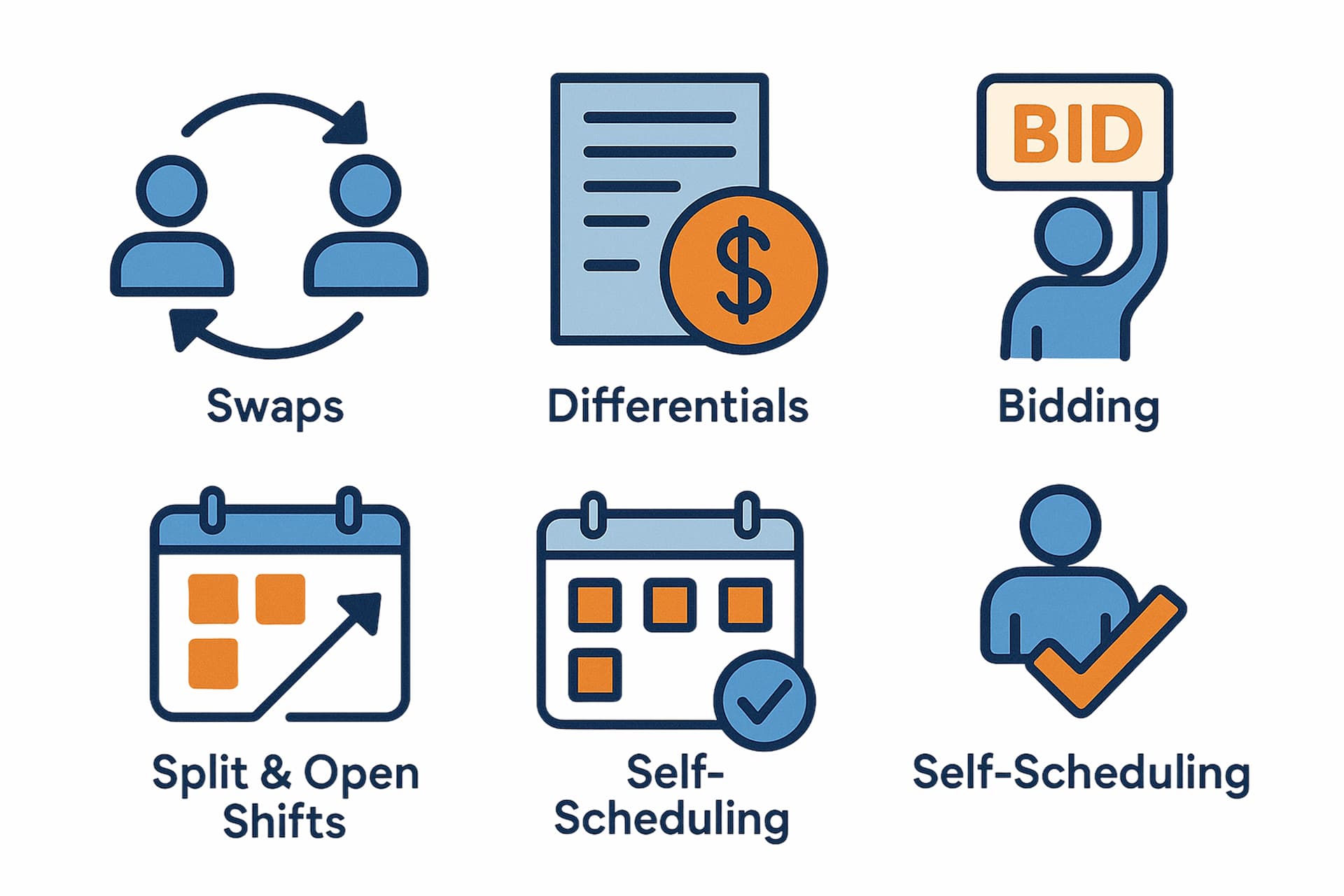Minimum Wage
Minimum wage is the lowest hourly pay rate employers must pay. Colorado has a statewide rate and several localities with higher rates. Employers must pay the highest applicable rate.
Statewide (effective Jan 1, 2025): $14.81 per hour for most employees.
Local minimum wages (effective Jan 1, 2025):
- Denver: $18.81/hour
- Edgewater: $16.52/hour
- Boulder County (unincorporated areas): $16.57/hour
Local ordinances may have additional rules on notices, records, and enforcement.
Tipped Minimum Wage
Tipped minimum wage applies to employees who regularly receive tips. If tips plus the tipped cash wage do not reach the full minimum wage, the employer must make up the difference.
Statewide tipped minimum (Jan 1, 2025): $11.79/hour for most employees.
Local tipped minimums (Jan 1, 2025):
- Denver: $15.79/hour
- Edgewater: $13.50/hour
- Boulder County (unincorporated): $13.55/hour
- City of Boulder: $12.55/hour
Employers must maintain accurate tip records and follow any local posting/notice requirements.
Overtime Laws
In Colorado, nonexempt employees are generally entitled to overtime pay at 1.5× their regular rate when certain thresholds are exceeded.
Weekly: Overtime after more than 40 hours in a workweek.
Daily / consecutive hours: Overtime after more than 12 hours in a day or 12 consecutive hours of work, whichever yields more pay.
- Overtime must be paid even if not preapproved.
- The “regular rate” includes nondiscretionary bonuses and differentials.
- Some roles may be exempt; misclassification risks penalties.
Meal & Rest Breaks
Colorado requires a 30-minute meal break and paid rest periods for covered employees.
Meal breaks: 30-minute meal break after working 5 hours. Unpaid if duty-free and uninterrupted; paid if the employee must remain on duty.
Rest breaks: A paid 10-minute rest break for every 4 hours worked (or major fraction thereof), ideally near the middle of each work period.
Covered industries include: Retail and service; food and beverage; commercial support service; dry cleaning and housekeeping; health and medical.
- Employers may require employees to remain on premises during rest breaks.
- Missed/short breaks may require premium pay or corrective action.
- Industry-specific rules can apply in addition to these requirements.
Leave & Holidays
Colorado’s leave rules combine state requirements with employer policy. Below are common statewide standards.
Vacation leave: Not required by law, but if provided, employers must follow their policy/contract. Earned vacation is typically treated as wages:
- Employers must pay out earned vacation upon termination or resignation.
- Employers cannot force employees to forfeit already-earned vacation before leaving.
- Policies must be communicated in writing.
Paid sick leave: Employers must provide at least 1 hour per 30 hours worked, up to 48 hours per year. Unused paid sick leave generally does not need to be paid out at separation.
Holidays: Private employers are not required to provide paid or unpaid holiday leave. Holiday hours do not count toward overtime unless the employee actually works those hours.
Child Labor Laws
Colorado child labor rules limit hours, times of day, and types of work for minors, with stricter limits for those under 16.
State rules: No employer may have a minor work more than 40 hours per week or 8 hours in any 24-hour period (except in a business emergency). Minors under 16 may not work between 9:30 PM and 5:00 AM if the next day is a school day.
Minors under 16 during school periods:
- Max 3 hours on a school day
- Max 18 hours in a school week
- Up to 8 hours on a non-school day
- No work during school hours without a school release permit
Federal rules (for reference): Ages 14–15 may only work outside school hours; generally no earlier than 7 AM or later than 7 PM (to 9 PM from June 1 to Labor Day), with daily/weekly hour caps.
Ages 16–17: Fewer hour limits but still prohibited from hazardous occupations.
Hiring & Firing
Colorado is an at-will state, but employers must follow anti-discrimination and fair hiring rules.
Hiring: Job postings must accurately represent the role. Background checks must comply with federal Fair Credit Reporting Act (FCRA), including obtaining written consent.
Drug policies: Although recreational marijuana is legal in Colorado, employers may maintain drug-free workplace policies and conduct testing consistent with law and policy.
Anti-discrimination: The Colorado Anti-Discrimination Act (CADA) prohibits discrimination based on protected characteristics, including:
- Race, color, religion, national origin
- Sex, sexual orientation
- Disability
- Age
Firing: At-will employment allows termination for any lawful reason, but not for discriminatory or retaliatory reasons.
Disclaimer:
The information provided is for general informational purposes only and is not legal advice. Always confirm with official Florida and federal sources. Shifts by Everhour helps automate compliance but does not replace legal or payroll consultation.
Notes
- This page summarizes Colorado-wide and selected local rules effective January 1, 2025.
- For compliance, always follow the highest applicable standard (local vs. state vs. federal).
- Local ordinances can include extra notice, posting, and recordkeeping requirements.



